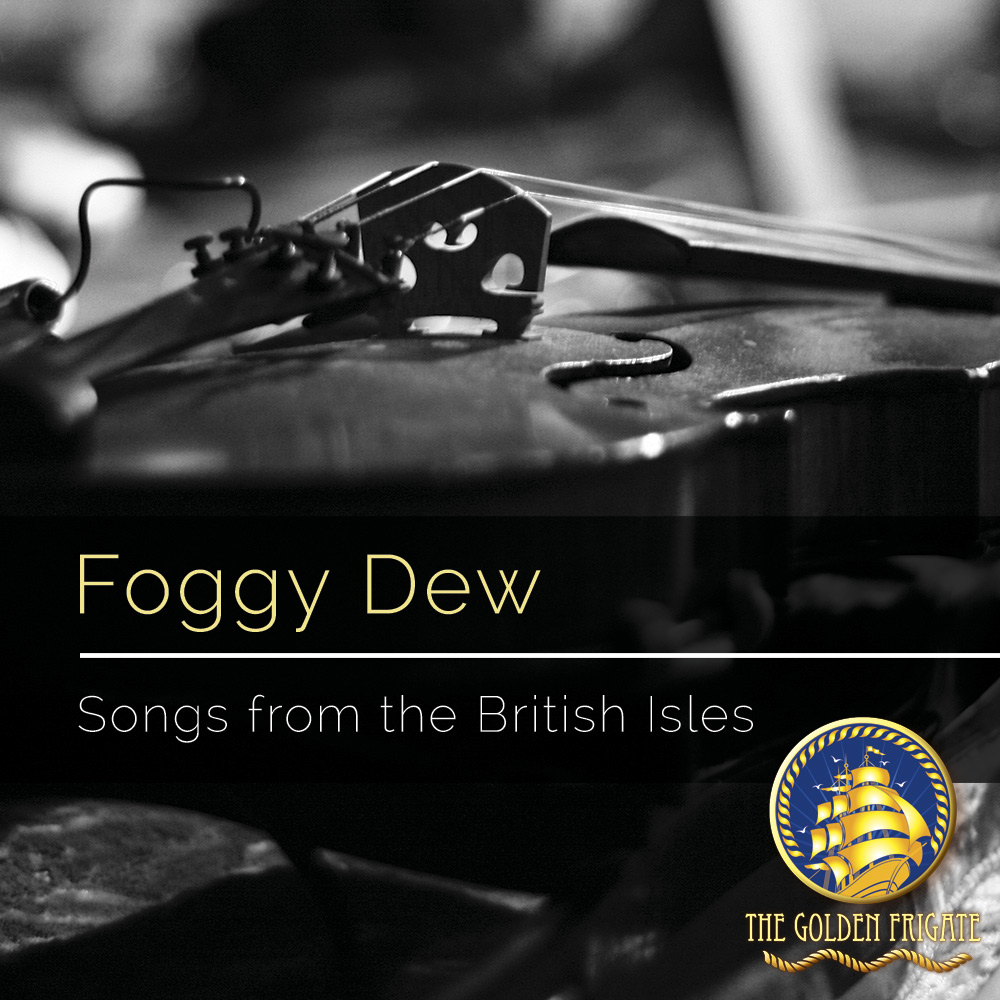Foggy Dew
Songs from the British Isles
Foggy Dew
“The Foggy Dew” is an Irish ballad written by Canon Charles O’Neill, a parish priest of Kilcoo in County Down in the north of Ireland.
The song lyrics deal with the Irish Easter Uprising of 1916. It is an appeal for Irishmen to fight for their freedom rather than fight for the English in foreign wars.
The melody of ‘The Foggy Dew’ is based on an old traditional Irish song called the ‘Banks of Moorlough Shore’.
Over the Stone
The tune of ‘Over the Stone’ is a traditional Welsh melody. The sentiments are attributed to Rhys Bodychen, who led a troop of Welsh forces at the Battle of Bosworth Field where Richard III was defeated by Henry Tudor in 1485.
The English lyrics are by John Oxenford.
Rolling Down to Old Maui
‘Rolling Down to Old Maui’ is a well-known sea song.
After ‘six hellish months’ of whaling in the cold waters of the Kamchatka sea the crew of a whaling vessel are longing to return to Maui, one of the Hawaiian islands where Pacific whalers used to meet.
The song comes from Gale Huntington’s ‘Songs the Whaleman Sang’. The words of the song were taken from the 1858 log of the ship Atkins Adams out of New Bedford and the melody was found in Frederick Harlow’s ‘Chanteying Aboard American Ships’ (1962).
The Irish Girl
We found this beautiful and very melodic ballad in ‘Eighty English Folk Songs’ song book by Cecil J.Sharp and Maud Karpeles, who travelled through and explored the Southern Appalachian Mountains on their memorable expeditions during the years 1916 to 1918 to make an incredible collection of folk songs and ballads which had been treasured and handed down by word of mouth through generations. In our interpretation of the song we kept the original melody as it was in the book and also added a little vocal part to go in between the main verses, which hopefully adds new colours to the song.
Carrickfergus
This is an Irish folk ballad which dates from the 18th century, though the original roots of the song are not very clear. Carrickfergus is a town in County Antrim, Northern Ireland.
The song is believed to have been first known as ‘The Sick Young Lover’ and it could have been a combination of English and Irish melodies. The song makes you feel nostalgic as it evolves, it brings back memories of the past and enchants you with its sad beauty.
Whiskey in the Jar
This is a classic Irish street ballad and is undoubtedly one of the most famous and most widely performed Irish songs of all time. It is a story of a brave highwayman who robs an officer and goes through a number of mishaps.
Various versions of the song are known. The song’s exact origins are unclear but it dates as far back as the 17th century when highwaymen were admired and liked in British folk music. The lyrics are both rebellious and inspirational and the ballad is very emotional.
The song is also known under the title ‘Kilgary Mountain’, though no Kilgary Mountain exists in Ireland…
The Wild Rover
‘The Wild Rover’ is one of the most popular and widely performed Irish folk songs ever. Its exact origins are unknown. Various versions of the song are known and it has been found in written records since the late sixteenth century. It is referred to as a drinking song or in some sources as a temperance song as it is believed it was originally written. For many people ‘The Wild Rover’ is a stereotypical Irish drinking song which tells a story of a man who’s “… been a wild rover for many’s the year and… spent all (his) money on whiskey and beer…”
Down by the Glenside
The song was originally written by Peadar Kearney around the time of the 1916 rebellion and it commemorates earlier Irish uprisings. It is set to an old air and is also known under the title ‘The Bold Fenian Men’.
Brendan Behan, on his record of his Irish folk songs, says, ‘This song was written by a brother of my mother’s, and I understand featured in an American film, ‘West of the Rio Grande’(1950).

